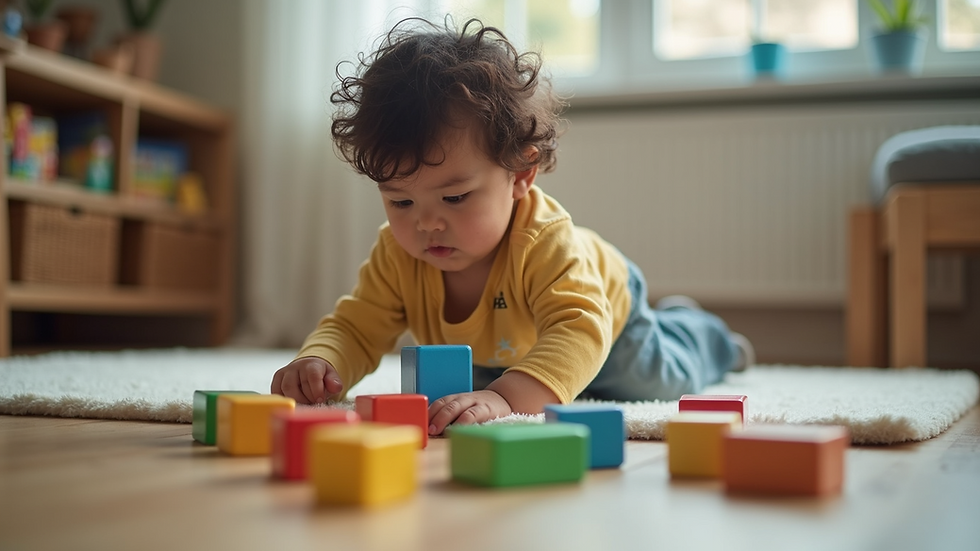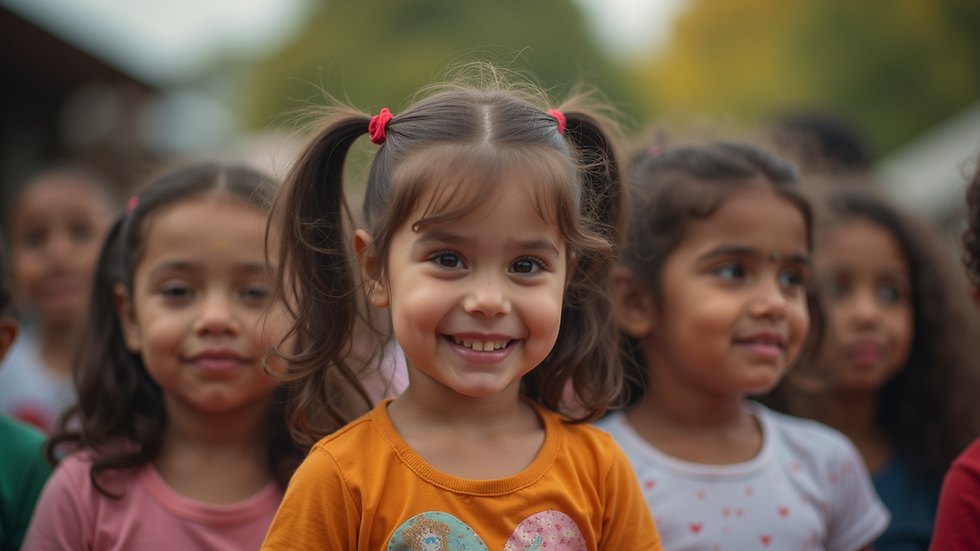Exploring Human Rights: The Importance of Emotional Safety for Children
- hearthiveorg

- Aug 13, 2025
- 3 min read
In today’s world, the importance of emotional safety is becoming increasingly acknowledged as a vital human right. At Heart Hive Foundation, we believe in a future where every child feels secure, valued, and understood. Emotional safety is not just an added benefit; it is essential for healthy growth and development. Join us as we uncover the significance of emotional safety and its impact on children's rights.

Understanding Human Rights through Emotional Safety
Emotional safety means creating an environment where children can share their thoughts and feelings without fear of judgment. It is where they can explore emotions, build relationships, and develop coping mechanisms. With the aid of supportive individuals and communities, such spaces can flourish in schools, homes, and neighborhoods.
The necessity of emotional safety is especially pronounced for children, as they are still figuring out their identities and learning how to cope with life's challenges. For instance, studies reveal that children in supportive environments perform 25% better academically compared to those in emotionally unsafe settings. When children feel safe, they are more likely to engage actively in learning, form healthy friendships, and develop a positive self-image. Prioritizing this foundational aspect is crucial for their well-being.

The Link Between Emotional Safety and Mental Health
Research consistently indicates that emotional safety directly influences mental health. Children who experience emotional security are significantly less likely to face issues such as anxiety and depression. According to a study conducted by the American Psychological Association, children in emotionally safe environments experience a 40% decrease in symptoms of anxiety compared to their peers in less supportive settings.
When children can express their feelings openly, they learn effective emotional management skills, which are vital for their growth. By fostering emotional safety and teaching empathy, we aim to nurture a generation that is not only mentally healthy but also resilient in facing life's challenges.
The Role of Caregivers and Educators
Caregivers and educators play a vital role in creating emotional safety for children. As Heart Hive Foundation evolves, we will focus on equipping these key figures with the necessary training and resources. Programs will highlight skills such as active listening and empathy, crucial for building trust with children. For example, volunteers trained in emotional safety practices report a 30% increase in student engagement and collaboration.
When caregivers and educators demonstrate these behaviors, children learn the importance of expressing themselves and feeling secure. This trust is fundamental to their emotional development and is a core aspect of their human rights.

Strong Parental Support
Creating emotionally safe environments is not solely the responsibility of parents at home; it benefits from community involvement (e.g. volunteering). Parents can take the lead in engaging their local communities in discussions about emotional safety. This hands-on involvement fosters understanding and encourages all members to contribute to supportive spaces for children.
Parents can organize workshops and family engagement events to raise awareness of emotional safety and strengthen a network that supports children’s emotional health. By working alongside educators, Heart Hive, and community leaders, parents help create a stronger safety net for children, leading to a community where young people feel genuinely valued.

Advocacy for Change
As we further our mission, Heart Hive Foundation aims for policy changes that recognize emotional safety as a human right. This advocacy involves working closely with policymakers to integrate emotional safety into children’s rights discussions. Increasing awareness about this issue will help create a legal framework that supports children’s emotional well-being.
Proposed policy changes could include incorporating emotional safety training in school curricula and establishing mental health guidelines for children. For example, countries that have integrated emotional safety measures in schools report a 15% improvement in student mental health outcomes. By advocating for these changes, Heart Hive Foundation aims to create a society that truly values the emotional safety of its children.
Together for Emotional Safety
Emotional safety is a vital aspect of children’s rights and a fundamental human right that deserves attention. As Heart Hive Foundation grows, we will continue to promote environments where children are safe, valued, and understood. By prioritizing emotional safety, we contribute to children's overall well-being, allowing them to thrive in our complex world.
Together, we can create a future where emotional safety is not merely an aspiration but a reality for every child. Join us in advocating for emotional safety as a human right and help us build a world where every child can flourish.
.png)



Comments